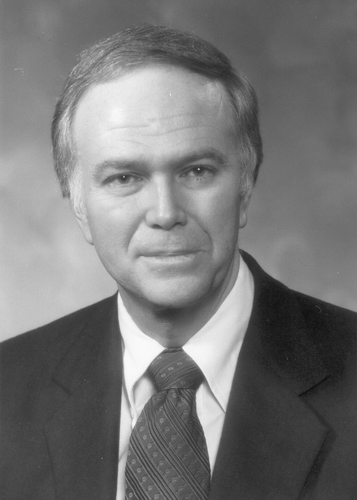Investigative Classics is a weekly feature on noteworthy past examples of the reporting craft.

Since the days of Thomas Jefferson and Alexander Hamilton, most federal sex scandals have tended to involve one man and somebody else. Think Wilbur Mills and Fanne Fox, Gary Hart and Donna Rice, Gerry Studds and a 17-year-old male Congressional page.
With a few notable exceptions – President Bill Clinton and Vice President Al Gore (who has been accused of improper conduct with multiple masseuses since leaving office) – the broad, relentless sexual misconduct now in the news has been rarely reported in Washington.
But that's not to say it doesn't exist: As Politico reported last week, two female lawmakers and several congressional staffers are calling for stricter Capitol Hill policies on sexual harassment, citing a culture of tolerance in a workplace long known as a boys’ club.
A long tradition indeed. A generation ago, the Washington Post reported that one of the Senate’s great champions of women, Republican Bob Packwood of Oregon (shown above in 2014 and as a Senator at left), had abused at least 10 women on his staff over the years. The opening of the Nov. 22, 1992 story by Florence Graves and Charles E. Shepard captured that contradiction:
Ask those who have worked for Sen. Bob Packwood about his treatment of women, and two portraits emerge. One is the Oregon Republican’s record as a leading advocate of women’s rights during his 24 years in the Senate and his much-admired history of hiring women, promoting them and supporting their careers even after they leave his office. Women currently hold the most powerful posts on his staff. The other is a side of Packwood, 60, that few who have experienced it or heard about it want to talk about. Since Packwood’s earliest days on Capitol Hill, he has made uninvited sexual advances to women who have worked for him or with him, according to former staff members and lobbyists, including 10 women who, independently of each other, have given specific accounts of Packwood’s behavior toward them.”
This activity included unwanted kissing and touching and sexual proposals. ...
Repeating the stale lines of public contrition that have been repeated endlessly in recent days, Packwood took almost three weeks to declare his conduct “just plain wrong.” He said, "I just didn't get it. I do now." Then he added:
"I am here to take full responsibility for my conduct. I will not debate the recent accounts of my actions toward my staff and those who worked with my office. The important point is that my actions were unwelcome and insensitive. These women were offended, appropriately so, and I am truly sorry."
Packwood’s regret did not include the admission of any more wrongdoing, but (again, as we see today) other women soon stepped forward. On Feb. 7, 1993, Graves and Shepard reported:
Thirteen more women say that Sen. Bob Packwood (R-Ore.) made uninvited sexual advances toward them, and according to their accounts, his unwanted kissing and touching extended to campaign volunteers, casual acquaintances and virtual strangers as well as employees and lobbyists.
In interviews, the women described a man whose sexual approaches came out of nowhere, often in unexpected situations. Several women said he took advantage of chance encounters to make abrupt and unwelcome advances, French-kissing them when a handshake might have been appropriate. Some women said he seized on their interests or aspirations to establish a rapport and then maneuvered to be alone with them.
At times, Packwood could be strikingly bold: One woman interviewing for a job said he made it clear he wanted her to spend the night with him, although he hardly knew her. Sometimes, he could be persistent: A former staff member said she rebuffed his advances on three separate occasions before she left for another job.
Packwood hung on until 1995, when his resigned his Senate seat under threat of expulsion. Florence Graves went on to become founding director of the Schuster Institute for Investigative Journalism at Brandeis University.



